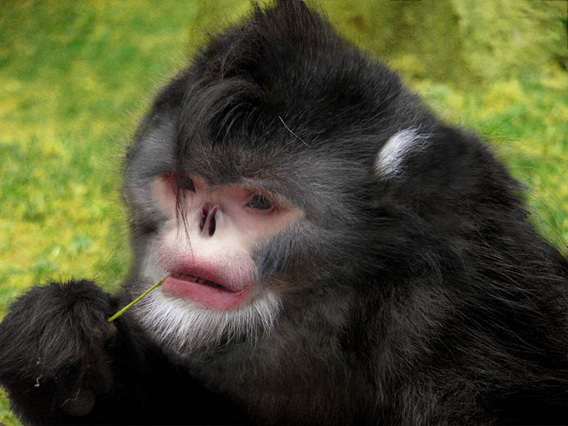
In January, eight Extreme Biology students will travel to Science Online 2011, an international conference where scientists, educators, journalists, and students come together to discuss the way the web is changing science and science education. As part of their preparation, the students have conducted interviews with conference organizers, presenters, and participants. This is the...
Read more »

In January, eight Extreme Biology students will travel to Science Online 2011, an international conference where scientists, educators, journalists, and students come together to discuss the way the web is changing science and science education. As part of their preparation, the students have conducted interviews with conference organizers, presenters, and participants. This is the...
Read more »

Here are a couple of websites to help you practice analyzing pedigrees. When you’re attempting to answer these problems you must first answer the following questions: a) Is this a sex-linked trait or a non-sex linked trait? b) Is this a dominant trait or a recessive trait? Analyzing pedigree images Creating a pedigree Analyzing...
Read more »

The 9th grade biology students recently traveled to London for a week-long field trip to many historical sites. The students spent three hours exploring the Natural History Museum. The following is the fourth in a series of posts written by the students to discuss what they learned. by Gunnar, Naseem, and Dawood. You turn on...
Read more »

The 9th grade biology students recently traveled to London for a week-long field trip to many historical sites. The students spent three hours exploring the Natural History Museum. The following is the third in a series of posts written by the students to discuss what they learned. by Dan, Eva, and Taylor In London, we...
Read more »

Congratulations Students! You’ve earned it! Be sure to check out the rest of the nominations and vote for our blog to win the award!
Read more »

David Shiffman (@whysharksmatter), a marine biologist who studies sharks, visited the school yesterday and met with 4th, 5th, and 9th graders to discuss his experience working with sharks. Shiffman gave a brief overview of his fieldwork and then answered student questions. Student questions ranged from why sharks bite people to what types of shark are...
Read more »

Students have started posting their blogs about their experience at the Darwin Center. More will be posted soon!
Read more »
Today in our science communication class we watched two trailers: Inconvenient Truth and Sizzle! Both are documentaries on global warming (climate change). But, both use very different methods to inform the audience of their message. Which trailer is more effective? How should we measure effectiveness? We can measure it in at least four ways: ...
Read more »

In January, eight Extreme Biology students will travel to Science Online 2011, an international conference where scientists, educators, journalists, and students come together to discuss the way the web is changing science and science education. As part of their preparation, the students have conducted interviews with conference organizers, presenters, and participants. This is the...
Read more »

The 9th grade biology students recently traveled to London for a week-long field trip to many historical sites. The students spent three hours exploring the Natural History Museum. The following is the second in a series of posts written by the students to discuss what they learned. by Emily, Gabby, and Nick As a...
Read more »

The 9th grade biology students recently traveled to London for a week-long field trip to many historical sites. The students spent three hours exploring the Natural History Museum. The following is the first in a series of posts written by the students to discuss what they learned. By Joe, Josh V, and Sam After...
Read more »

On Saturday, the 9th graders will travel to London! On Friday, we’ll be visiting the Natural History Museum. While they’re at the museum, the students will break into groups and explore many of the exhibits. Each group will write a blog post when they get back about what they learned. So, be sure to check back...
Read more »

International Primate Experts have recently found a new species of snub-nosed or pub-nosed monkeys in the jungles of northern Myanmar. The monkey has been scientifically named Rhinopithecus strykeri, in honor of the president and founder of the Arcus Foundation (an organization that specializes in the conservation and protection of great apes), Jon Stryker. However,...
Read more »

Every living organism “poops”. Actually, “poop” is a common term used for feces. Feces, by definition, are the solid waste, which is expelled through the rectum (the end of the large intestine). The role of feces in organisms actually plays a huge purpose in the cycle of life ranging from helping organisms flourish or...
Read more »

This post was originally published on February 15, 2009. by Erik Check out the animation I created about my post. Enjoy! Darwin’s Mockingbirds! by spudinski01, made at DoInk.com On two small islands somewhere in the midst of the Galapagos Archipelago live some 100-200 mockingbirds. These specific mockingbirds however are some of the rarest bird...
Read more »





















